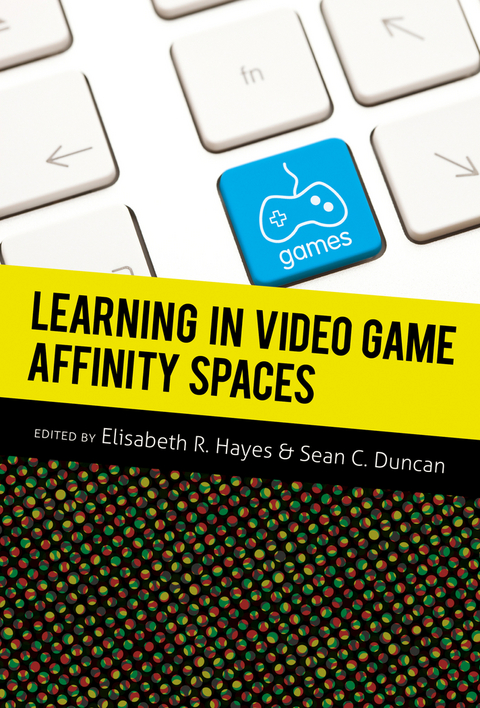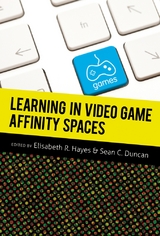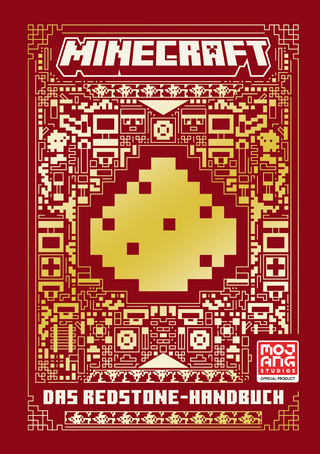Learning in Video Game Affinity Spaces
Peter Lang Publishing Inc (Verlag)
978-1-4331-0984-3 (ISBN)
- Titel z.Zt. nicht lieferbar
- Versandkostenfrei innerhalb Deutschlands
- Auch auf Rechnung
- Verfügbarkeit in der Filiale vor Ort prüfen
- Artikel merken
As video games have become an important economic and cultural force, scholars are increasingly trying to better understand the ways that engagement with games may drive learning, literacy, and social participation in the twenty-first century. In this book, the authors consider games and just as importantly, the social interactions around games, not in terms of how they should be managed or incorporated into existing educational structures, but for what they tell us about the forms of learning and literacy that are already instantiated within the use of these media. To this end, this book delves deeply into James Paul Gee’s (2004) productive and influential concept of the affinity space – the physical or virtual locations (or some combination of the two) where people come together around a shared interest or «affinity.» By explicating how and why engaged fans of digital media do what they do in online spaces, the authors cast a light, as Gee did, on the promise of these media and the problems facing current educational systems.
Elisabeth R. Hayes is Professor of English at Arizona State University. Her research interests focus on how the social and cultural aspects of online gaming communities support learning, particularly the development of fluency with digital technology. Her recent books include Women and Gaming: The Sims and 21st Century Learning (2010) and Language and Learning in a Digital Age (2011), both co-authored with James Paul Gee. Sean C. Duncan is the Armstrong Professor of Interactive Media, an Assistant Professor in Miami University's School of Education, Health, and Society and Armstrong Institute for Interactive Media Studies. His current research is focused on understanding the learning and literacy implications of online cultures around games and game design.
Contents: Sean C. Duncan /Elisabeth Hayes: Expanding the Affinity Space: An Introduction – Jayne C. Lammers: «Is the Hangout…The Hangout?» Exploring Tensions in an Online Gaming-Related Fan Site – Sean C. Duncan: Kongregating Online: Developing Design Literacies in a Play-Based Affinity Space – Shree Durga: Learning to Mod in an Affinity-Based Modding Community – Elizabeth M. King: The Productive Side of Playing in the Great Indoors – Christopher L. Holden: The Not-So-Secret Life of Dance Dance Revolution – Ben DeVane: Whither Membership? Identity and Social Learning in Affinity Spaces – Elisabeth Hayes/Yoonhee N. Lee: Specialist Language Acquisition and 3D Modding in a Sims Fan Site – Alecia Marie Magnifico: The Game of Neopian Writing – James Paul Gee: Afterword.
| Erscheint lt. Verlag | 30.5.2012 |
|---|---|
| Reihe/Serie | New Literacies and Digital Epistemologies ; 51 | New Literacies and Digital Epistemologies ; 51 |
| Verlagsort | New York |
| Sprache | englisch |
| Maße | 155 x 230 mm |
| Gewicht | 490 g |
| Themenwelt | Sachbuch/Ratgeber ► Beruf / Finanzen / Recht / Wirtschaft ► Briefe / Präsentation / Rhetorik |
| Schulbuch / Wörterbuch | |
| Informatik ► Weitere Themen ► Computerspiele | |
| Sozialwissenschaften ► Kommunikation / Medien ► Kommunikationswissenschaft | |
| Sozialwissenschaften ► Pädagogik ► Allgemeines / Lexika | |
| Sozialwissenschaften ► Soziologie | |
| Schlagworte | affinity space • Game Culture • Internet culture • learning • Literacy • video games |
| ISBN-10 | 1-4331-0984-0 / 1433109840 |
| ISBN-13 | 978-1-4331-0984-3 / 9781433109843 |
| Zustand | Neuware |
| Haben Sie eine Frage zum Produkt? |
aus dem Bereich




